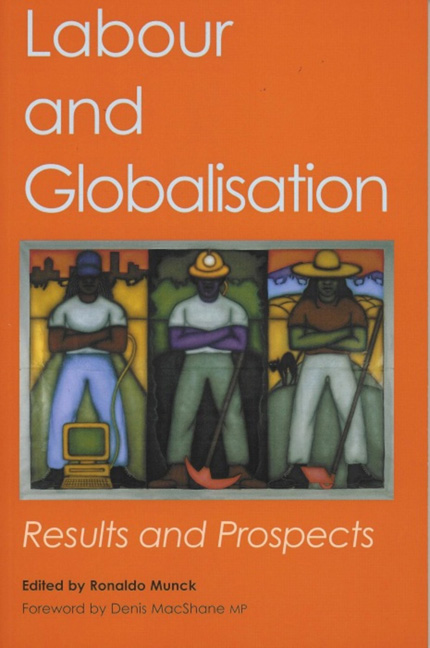Book contents
- Frontmatter
- Contents
- Acknowledgements
- Foreword
- Notes on the Contributors
- List of Abbreviations
- Introduction: Globalisation and Labour Transnationalism
- Part I Global Dimensions
- Part II Spatial Dimensions
- Part III Social Dimensions
- 9 Beyond Unions: Labour and Codes of Conduct
- 10 Globalisation and Child Labour: Protection, Liberation or Anti-Capitalism?
- 11 Globalisation, Trade Unionism and Solidarity: Further Reflections on the Liverpool Dock Lockout
- 12 Globalisation and Trade Union Strategy: Evidence from the International Civil Aviation Industry
- Index
11 - Globalisation, Trade Unionism and Solidarity: Further Reflections on the Liverpool Dock Lockout
from Part III - Social Dimensions
- Frontmatter
- Contents
- Acknowledgements
- Foreword
- Notes on the Contributors
- List of Abbreviations
- Introduction: Globalisation and Labour Transnationalism
- Part I Global Dimensions
- Part II Spatial Dimensions
- Part III Social Dimensions
- 9 Beyond Unions: Labour and Codes of Conduct
- 10 Globalisation and Child Labour: Protection, Liberation or Anti-Capitalism?
- 11 Globalisation, Trade Unionism and Solidarity: Further Reflections on the Liverpool Dock Lockout
- 12 Globalisation and Trade Union Strategy: Evidence from the International Civil Aviation Industry
- Index
Summary
On 25 September 1995, 20 workers employed by the Torside stevedoring company in Liverpool were instructed to work overtime under conditions which broke existing contractual arrangements held between Torside Ltd, the Mersey Docks and Harbour Company (MDHC) and the Transport and General Workers’ Union (TGWU). In response the men decided, at the end of their normal shift, to return to the canteen and attempt to contact their shop steward. The first five men to reach the canteen were met by the managing director of Torside, who sacked them for leaving the ship. When the others arrived they were told to return to the ship without their colleagues or face dismissal. They refused to return without their workmates and were sacked. On the following morning the shop stewards arranged a meeting to review the situation. The managing director of Torside appeared at the meeting and sacked the entire Torside workforce. Over the next few days the conflict spread through the port as the Torsiders picketed out the dock workforce. First, men from Nelson Freight were picketed out – and then sacked for joining the strike. Then, on 28 September, a picket was placed on the gates of Seaforth docks – the main entry point for 325 MDHC-employed dockers. The Seaforth workforce refused to cross the line, which meant that dockers across the whole complex were out on strike. Instead of entering into negotiations MDHC chose to sack the entire workforce and recruit a casual, non-union labour force via Drake International, a London-based employment agency. In the space of four days, 500 workers had lost their jobs. When the TGWU tried to negotiate a return to work, MDHC informed them that there would be jobs for a small minority, on new casual contracts and no union recognition, but the majority would never work at the complex again. The dispute had turned into a fully fledged union-busting lockout.
These dramatic events started the Liverpool docks lockout that was to continue for the next 28 months, eventually ending in defeat for the dockers in January 1998. The story of the lockout has been told elsewhere and it is not our intention to repeat much of that history here (see Lavalette and Kennedy, 1996; 1997; 1998; Kennedy and Lavalette, 1997; Castree, 1999; Barker and Lavalette, 2001).
- Type
- Chapter
- Information
- Labour and GlobalisationResults and Prospects, pp. 206 - 226Publisher: Liverpool University PressPrint publication year: 2003



